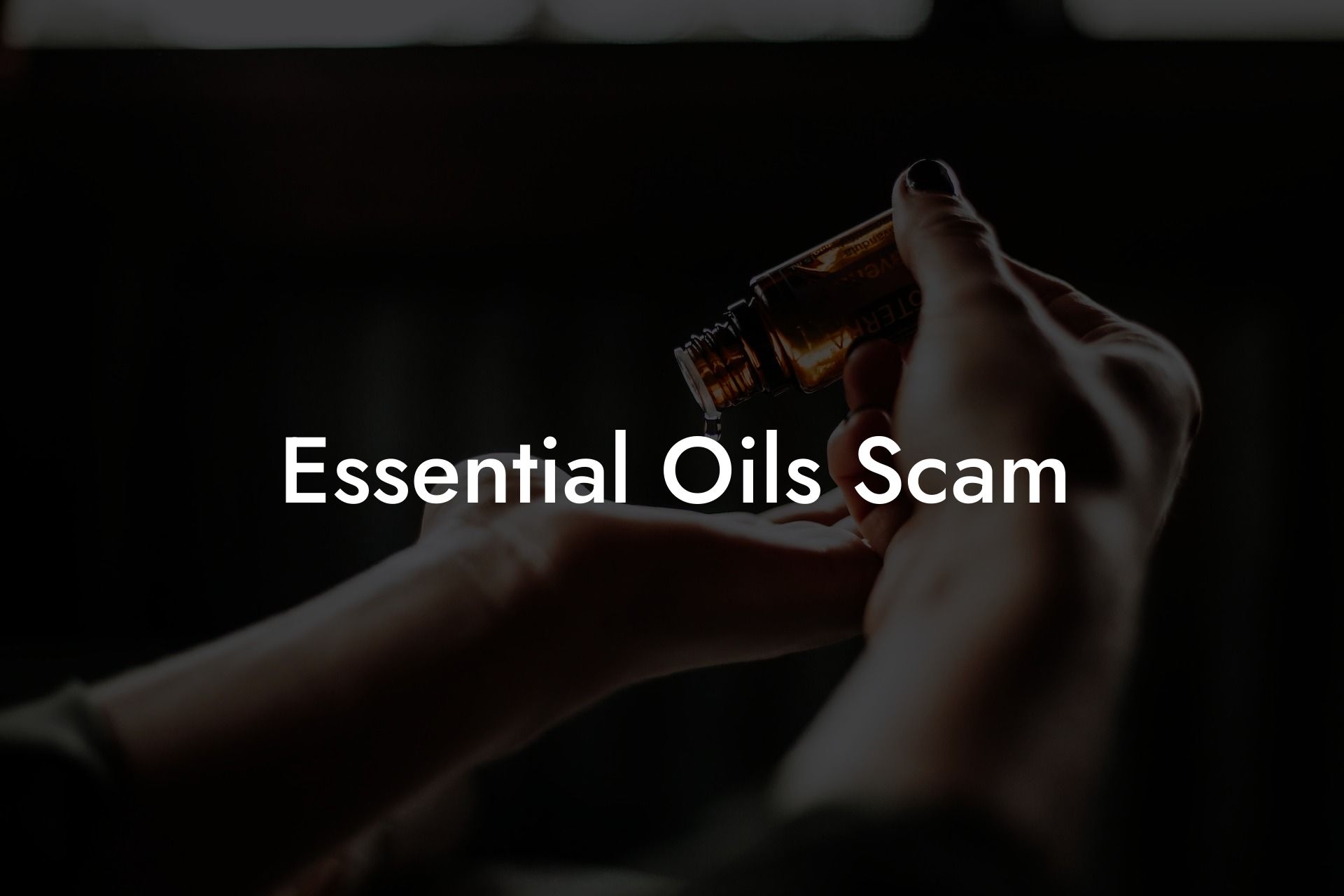In the world of essential oils, false claims and misleading information are unfortunately all too common. This can make it difficult for consumers to know what’s true and what’s not. In this article, we will delve into the essential oils scam and help you become more informed in making the right choices when purchasing these products.
Table of Contents
Understanding the Essential Oils Scam
To make informed decisions about essential oils, it is crucial to understand the scams that exist within the industry. Some common essential oils scams include:
False Claims of Therapeutic Benefits
Many companies claim that their essential oils can treat or cure various medical conditions, despite lacking scientific evidence. This can be dangerous, as individuals may seek alternative treatments rather than seeking professional medical advice.
Unregulated and Inferior Quality Oils
Some companies sell products that are either diluted or contain synthetic ingredients. This means that you may be getting an inferior product that won’t provide the same benefits as a pure, high-quality essential oil.
Overpriced Oils and Pyramid Schemes
Some businesses inflate the prices of their essential oils, while others use their customers as distributors in a multi-level marketing (MLM) scheme. This can result in overpriced products with questionable quality.
Tips for Avoiding Essential Oils Scams
To protect yourself from scams, follow these tips when shopping for essential oils:
- Research the company – Investigate the reputation of the company you are considering purchasing essential oils from. Look for reviews from trustworthy sources and ask for recommendations from friends and family who have used essential oils.
- Check labeling and ingredient information – Genuine essential oils should have clear labeling, stating the oil’s common name, botanical name, country of origin, extraction method, plant part used, and other crucial information.
- Consider the price – While essential oils can be expensive due to the amount of plant material required for production, unusually low prices could indicate an inferior product.
- Avoid miracle claims – Be skeptical of companies that make bold claims about their essential oils’ therapeutic properties, especially if they lack scientific evidence.
Essential Oils Scam Example:
Imagine you’re browsing online for some lavender essential oil to help you relax and promote better sleep. You come across an advertisement for company XYZ, claiming that their lavender oil can treat insomnia, anxiety, and even improve cognitive function.
You decide to investigate further and check out their website. First, you look for customer reviews and find mixed opinions. Next, you check the product’s labeling and ingredient information. The product label does not include crucial information such as the botanical name or extraction method, and the ingredient list includes added “fragrance.”
These red flags, paired with the miracle claims, should prompt you to steer clear of XYZ and continue searching for a more reputable essential oil brand that provides clear and transparent information about their products.
Now that you’re well-informed about the essential oils scam, you can make educated choices when purchasing these products. Remember to research companies, pay attention to labels, and be skeptical of miracle claims.
We encourage you to share this article with friends and family who may also be interested in essential oils. By spreading the word about essential oils scams, we can help protect others from misleading information and ensure that everyone can experience the true benefits of these natural remedies.
For more helpful guides and information about essential oils, please check out the other articles on the Oshu Oils blog. Also, explore our range of high-quality, ethically-sourced essential oils that provide genuine therapeutic benefits without the scams. Let Oshu Oils be your trusted source for artisan essential earth oils that promote balance, wellness, and harmony in your life.





















